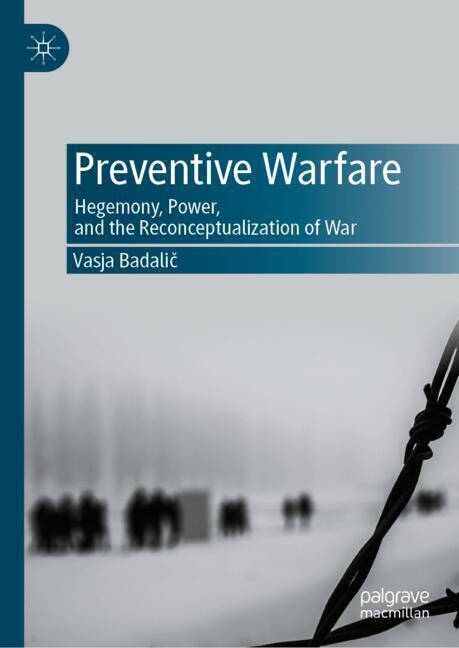
- Retrait gratuit dans votre magasin Club
- 7.000.000 titres dans notre catalogue
- Payer en toute sécurité
- Toujours un magasin près de chez vous
- Retrait gratuit dans votre magasin Club
- 7.000.0000 titres dans notre catalogue
- Payer en toute sécurité
- Toujours un magasin près de chez vous
Preventive Warfare
Hegemony, Power, and the Reconceptualization of War
Vasja BadaličDescription
This book provides a critical and comprehensive analysis of the reconceptualization of preventive warfare in the 21st century. It discusses how the US launched and fought some wars to prevent future vague threats and how that practice has fundamentally undermined the legal system and the main principles of the use of force in ways that not only further US dominance but shield powerful actors from accountability. The US redefined key legal concepts to set up a new legal framework for preventive warfare and, consequently, introduced new practices for carrying out preventive military operations.
Drawing on a collection of case studies, on the changes in the jus ad bellum and jus in bello, focusing mainly on Afghanistan and Iraq and beyond, the book shows how violations of the law of war were persistently conducted in the 21st century by supposedly democratic countries that claimed to be upholding the law. It explores three types of preventive warfare - that is, preventive national self-defense, preventive on-the-spot reactions, and preventive "security" detention - to show how they blurred the line between civilians and legitimate military targets, and thus increased the risk of causing harm to civilians. The book speaks to students, scholars, and practitioners from the fields of criminology, law, international relations, political science, critical security studies, and critical military studies.
Spécifications
Parties prenantes
- Auteur(s) :
- Editeur:
Contenu
- Nombre de pages :
- 222
- Langue:
- Anglais
Caractéristiques
- EAN:
- 9783031686412
- Date de parution :
- 06-10-24
- Format:
- Livre relié
- Format numérique:
- Genaaid
- Dimensions :
- 158 mm x 212 mm
- Poids :
- 417 g

Les avis
Nous publions uniquement les avis qui respectent les conditions requises. Consultez nos conditions pour les avis.






